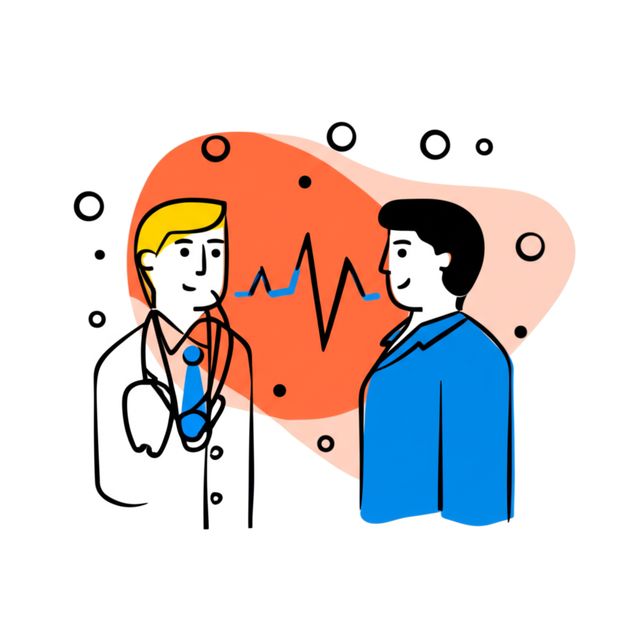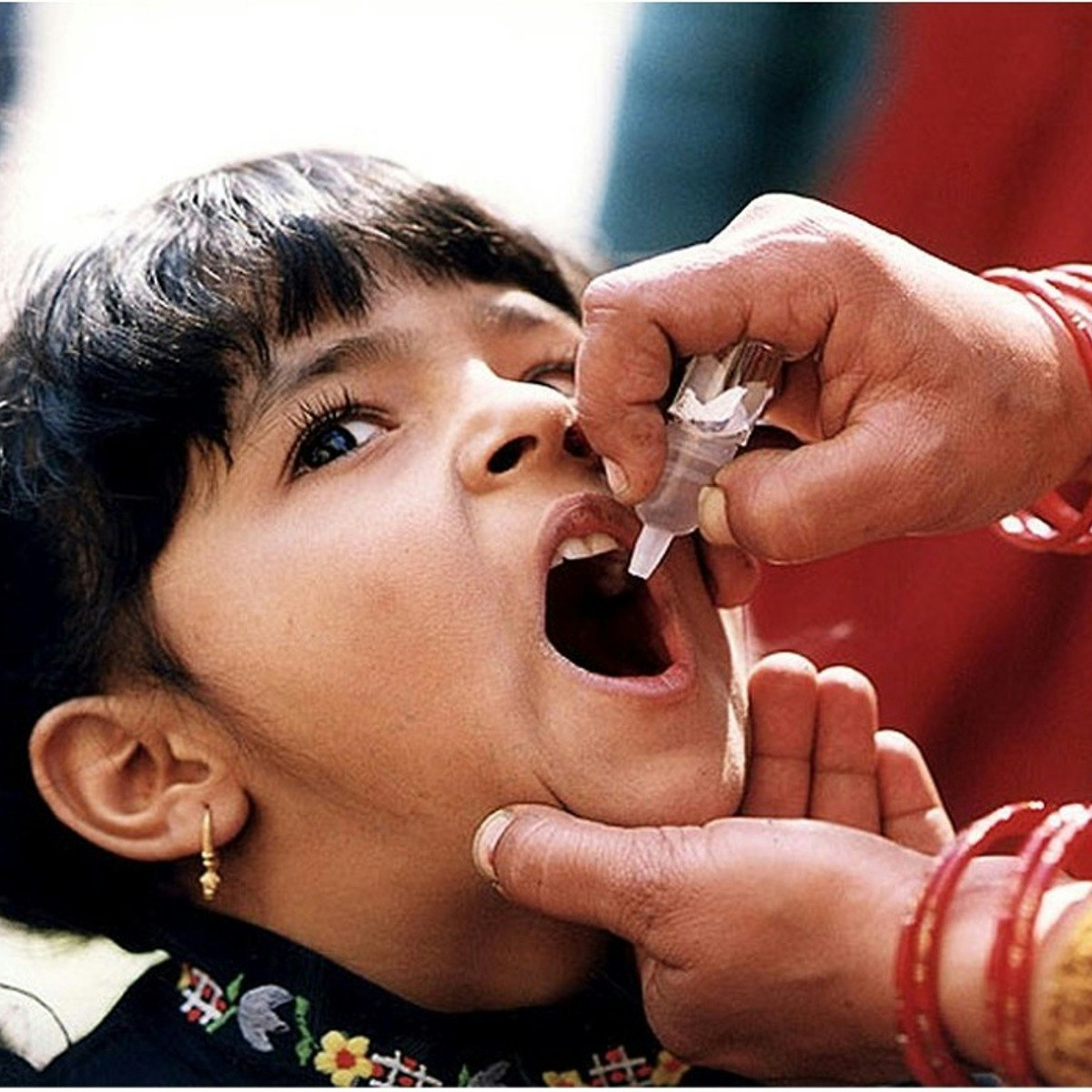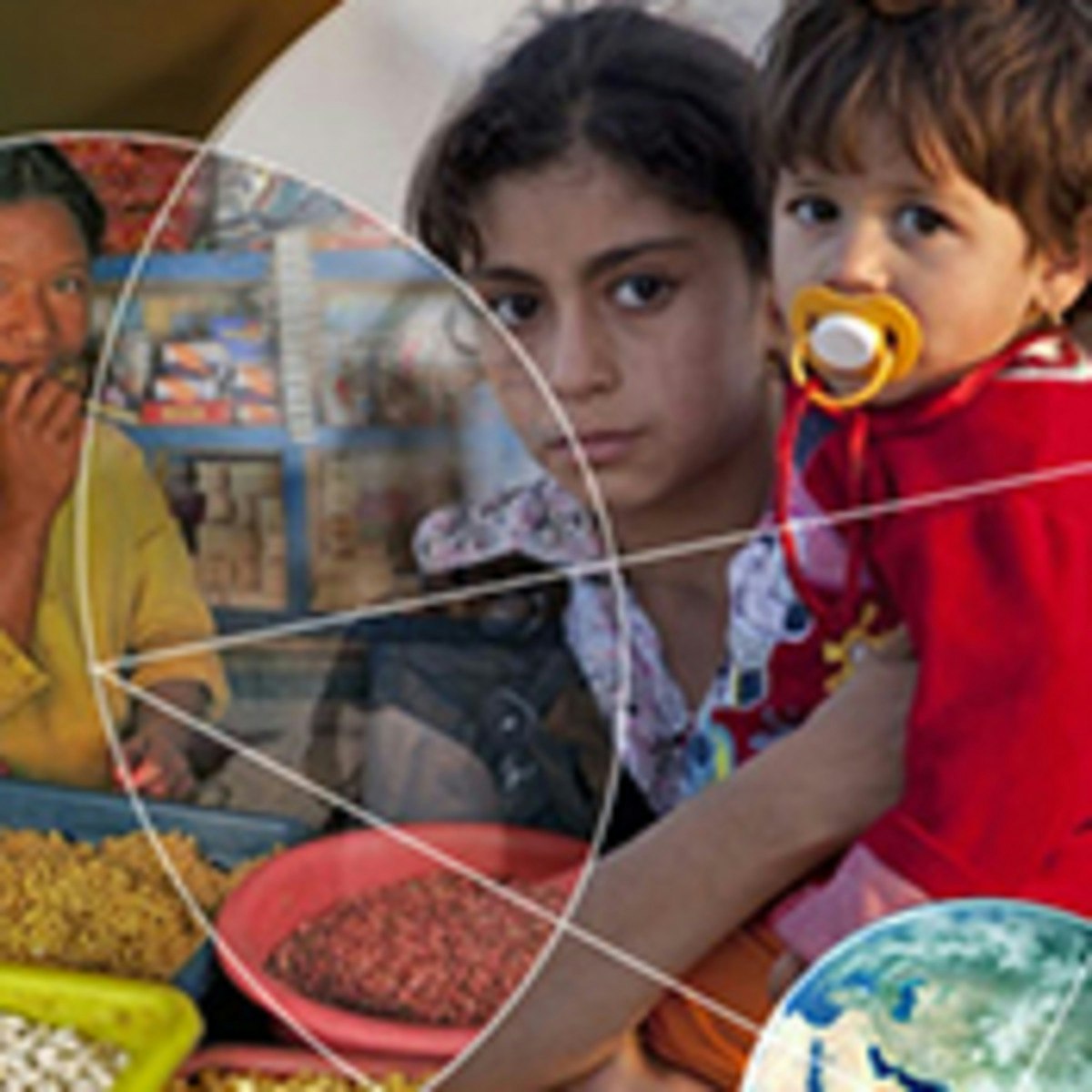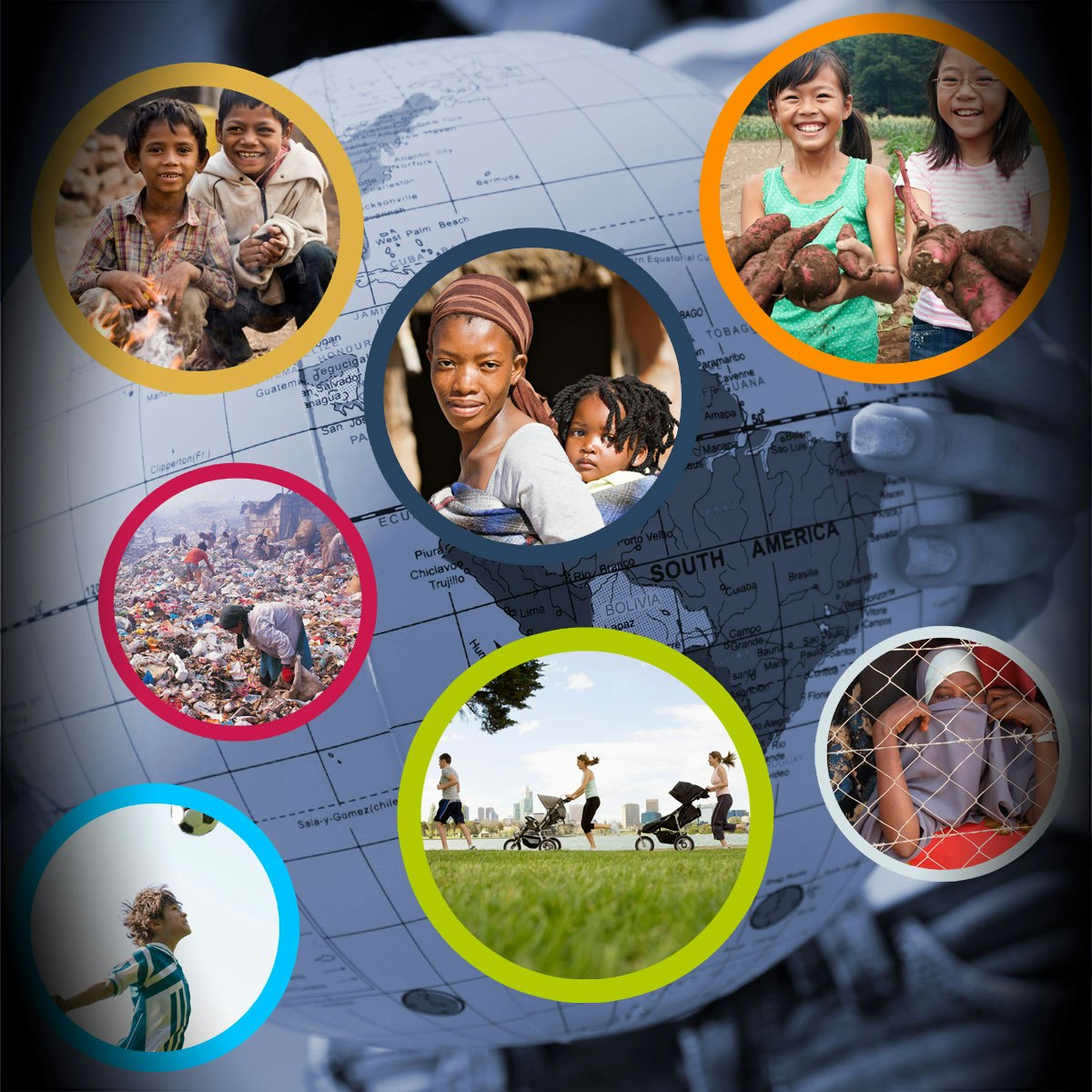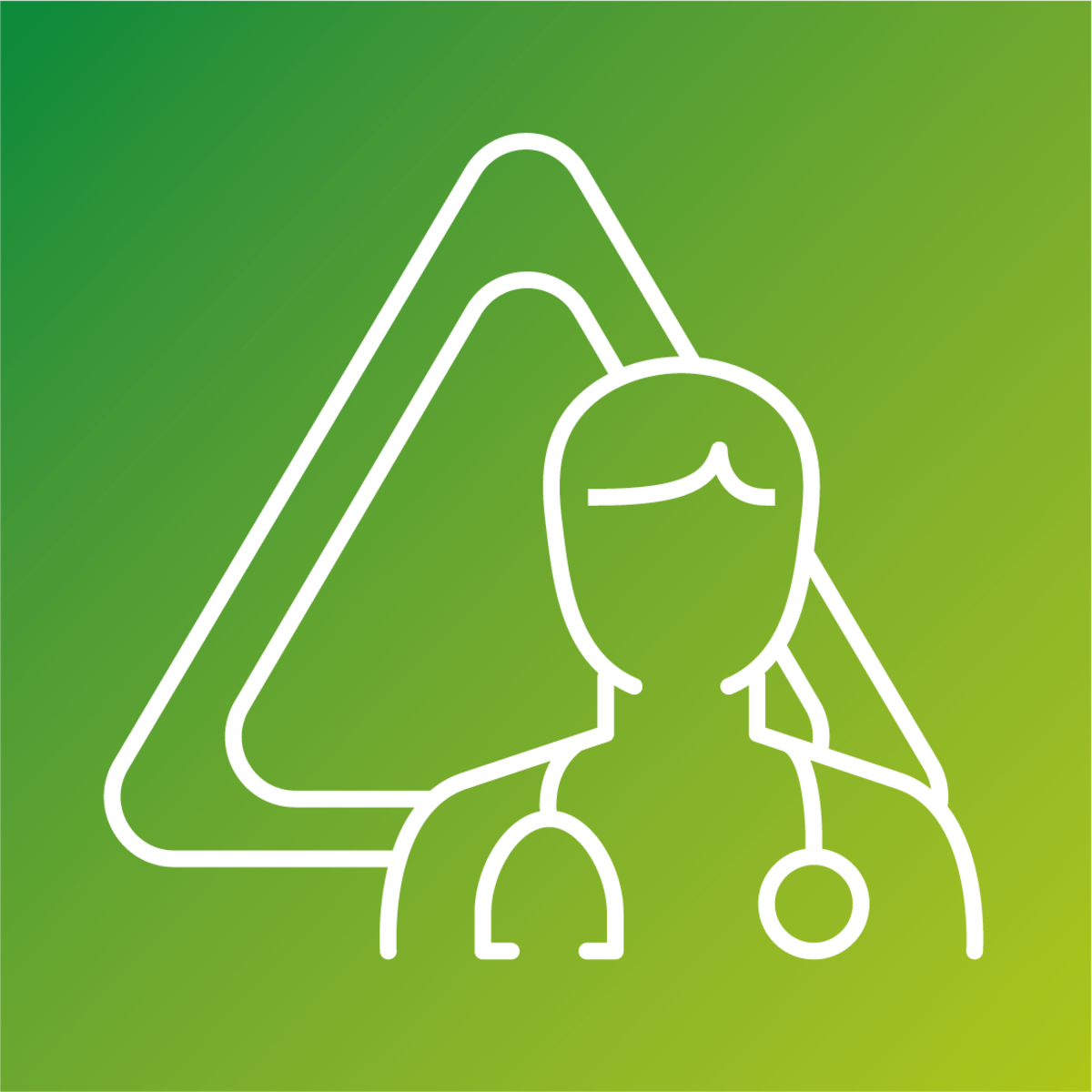Global Health Consultant
A Career Path in Global Health Consulting
Global Health Consulting stands at the intersection of public health, international development, policy analysis, and management consulting. Professionals in this field work to address complex health challenges that transcend national borders, aiming to improve health outcomes and health equity for populations around the world. They collaborate with governments, non-governmental organizations (NGOs), international bodies like the World Health Organization (WHO) and the World Bank, private foundations, and corporations.
Working as a Global Health Consultant can be incredibly rewarding. It offers the chance to contribute meaningfully to solving some of the world's most pressing health problems, from infectious disease outbreaks to chronic malnutrition and disparities in healthcare access. The role often involves international travel, exposure to diverse cultures, and collaboration with experts from various fields, making it a dynamic and intellectually stimulating career choice.
Understanding the Scope and Impact
Defining Global Health Consulting
Global Health Consulting involves providing expert advice and strategic support to organizations working on health issues with an international or cross-border dimension. Consultants analyze health systems, design intervention strategies, evaluate program effectiveness, develop policies, and help secure funding. Their work aims to improve health service delivery, strengthen health systems, and tackle specific health threats in diverse global settings, often focusing on low- and middle-income countries (LMICs).
The scope is vast, covering areas such as infectious disease control (like HIV/AIDS, tuberculosis, malaria, and pandemic preparedness), maternal and child health, nutrition, non-communicable diseases, health systems strengthening, health financing, and health policy. Consultants bring analytical rigor, project management skills, and an understanding of global health dynamics to help clients achieve their objectives.
This career demands adaptability, problem-solving skills, and a deep commitment to improving health outcomes globally. It requires navigating complex political, economic, and cultural landscapes to develop solutions that are both effective and sustainable.
Global vs. Domestic Health Consulting
While both global and domestic health consulting focus on improving health systems and outcomes, key differences exist. Global health consulting inherently involves cross-cultural contexts, international stakeholders, and often resource-constrained environments. Consultants must navigate diverse political systems, varying regulatory landscapes, and significant logistical challenges related to working across borders.
Domestic health consulting typically operates within a single country's healthcare system, focusing on national or regional policies, regulations, and market dynamics. The challenges might involve optimizing hospital operations, implementing electronic health records, or navigating insurance reforms within a familiar legal and cultural framework.
Global health consultants often deal with a broader range of health issues, including infectious diseases less prevalent in high-income countries, and must consider factors like international aid flows, geopolitical influences, and extreme health disparities. Cultural competency and language skills are often more critical in the global sphere.
Historical Context and Evolution
The field of global health consulting emerged alongside the broader evolution of international health efforts. Early initiatives focused on colonial medicine and controlling specific tropical diseases. Post-World War II saw the rise of international organizations like the WHO, shifting focus towards broader public health goals and technical assistance to newly independent nations.
The late 20th and early 21st centuries witnessed significant growth, driven by the HIV/AIDS pandemic, the Millennium Development Goals (MDGs), and increased philanthropic investment from organizations like the Bill & Melinda Gates Foundation. This era saw a greater demand for strategic advice, program evaluation, and evidence-based interventions, fueling the need for specialized consultants.
Today, the field continues to evolve, influenced by globalization, the Sustainable Development Goals (SDGs), growing recognition of health security threats like pandemics (e.g., COVID-19), the impacts of climate change on health, and the rise of digital health technologies. Consulting practices adapt to these changing priorities and funding landscapes.
Major Global Health Challenges Addressed
Global Health Consultants tackle a wide array of critical challenges. A major focus remains on infectious diseases, including pandemic preparedness and response, controlling epidemics like Ebola, and combating long-standing threats such as HIV, tuberculosis, and malaria. This often involves strengthening surveillance systems, improving diagnostic capabilities, and supporting vaccination campaigns.
Consultants also work extensively on improving maternal and child health outcomes, addressing issues like high mortality rates, malnutrition, and access to reproductive health services. Ensuring health equity is another central theme, focusing on reaching vulnerable populations and reducing disparities in access and outcomes based on factors like gender, ethnicity, socioeconomic status, and geographic location.
Other key areas include strengthening health systems in LMICs, advising on health financing models like universal health coverage, tackling the growing burden of non-communicable diseases (like diabetes and cardiovascular disease) globally, and addressing the health impacts of climate change and humanitarian crises.
Roles and Responsibilities of a Global Health Consultant
Typical Project Engagements
Global Health Consultants engage in diverse projects tailored to client needs. Common engagements include designing public health programs, such as initiatives to improve vaccination coverage or reduce maternal mortality. They might develop strategies for scaling up interventions or adapting successful models to new contexts.
Policy design and analysis are frequent tasks. Consultants may help governments or international bodies formulate health policies, analyze the potential impact of policy changes, or develop regulatory frameworks. Program evaluation is another critical function, assessing the effectiveness, efficiency, and impact of existing health programs to inform future decisions and ensure accountability.
Other projects involve conducting health systems assessments, developing monitoring and evaluation frameworks, advising on health financing mechanisms, facilitating stakeholder workshops, conducting market analyses for health products, or supporting organizational development for health-focused NGOs.
Engaging Diverse Stakeholders
Effective stakeholder engagement is paramount in global health consulting. Consultants interact with a wide range of actors, including government officials (from Ministries of Health to local administrators), healthcare providers, community leaders, NGO staff, representatives from international organizations (like WHO, UNICEF, World Bank), private sector partners, and academic researchers.
Strategies involve building trust and rapport, understanding diverse perspectives and interests, facilitating communication between different groups, and managing potential conflicts. Consultants must tailor their communication style and approach based on the cultural context and the specific stakeholders involved.
Activities might include conducting interviews, leading focus groups, organizing multi-stakeholder workshops, presenting findings to high-level decision-makers, and navigating complex political dynamics to build consensus and ensure buy-in for proposed strategies or interventions.
Balancing Local Needs and Global Standards
A key challenge for Global Health Consultants is balancing internationally recognized best practices and guidelines with the specific needs, resources, and cultural contexts of local communities. Solutions that work well in one setting may not be appropriate or feasible in another due to differences in infrastructure, workforce capacity, funding, or cultural norms.
Consultants must practice active listening and engage deeply with local stakeholders to understand their priorities and constraints. They need to adapt global frameworks and evidence-based approaches to fit the local reality, ensuring that interventions are culturally sensitive, acceptable to the community, and sustainable within the available resources.
This often requires creativity, flexibility, and strong negotiation skills. It involves co-creating solutions with local partners rather than imposing external models, empowering local ownership and promoting long-term sustainability beyond the duration of the consulting engagement.
Crisis Response vs. Long-Term Capacity Building
Global Health Consultants may be involved in both rapid crisis response and long-term capacity building efforts. Crisis response often involves deploying quickly to support efforts during disease outbreaks, natural disasters, or humanitarian emergencies. This requires adaptability, resilience, and the ability to work under pressure in challenging environments.
Long-term capacity building focuses on strengthening health systems over time. This could involve training healthcare workers, improving health information systems, enhancing supply chain management for medicines, strengthening governance structures, or developing sustainable financing mechanisms. This work requires patience, a focus on sustainable change, and strong mentorship skills.
While distinct, these two aspects are often interconnected. Effective crisis response relies on pre-existing capacity, and lessons learned during crises can inform long-term strengthening efforts. Consultants may transition between these types of roles or specialize in one area depending on their skills and interests.
Essential Skills and Competencies
Cultural Competency and Adaptability
Working effectively across diverse cultural contexts is fundamental. Consultants must possess strong cultural competency – the ability to understand, appreciate, and interact effectively with people from cultures different from their own. This involves awareness of different communication styles, social norms, values, and beliefs related to health and healthcare.
Adaptability is equally crucial. Consultants often work in unfamiliar and sometimes challenging environments, facing unexpected logistical hurdles, shifting political landscapes, and resource limitations. They need to be flexible, resilient, and able to adjust their plans and approaches as circumstances change.
Developing these skills involves self-awareness, active listening, humility, a willingness to learn from local partners, and experience working or living in diverse settings. Formal training can provide frameworks, but practical experience is key.
Data Analysis and Interpretation
Strong analytical skills are essential for diagnosing problems, evaluating interventions, and making evidence-based recommendations. Consultants need proficiency in both quantitative and qualitative data analysis methods relevant to public health.
This includes understanding epidemiological concepts and methods for analyzing disease patterns, risk factors, and intervention impacts. Familiarity with statistical software and methods is often required. Geographic Information Systems (GIS) are increasingly used to map health data and identify geographic disparities.
Qualitative skills involve collecting and analyzing data from interviews, focus groups, and observations to understand context, perceptions, and experiences. Consultants must be able to synthesize complex data from multiple sources and present findings clearly to diverse audiences.
To develop data analysis skills relevant to global health, consider exploring courses focused on epidemiology, biostatistics, and health informatics.
Communication and Language Skills
Clear and effective communication is vital for building relationships, conveying complex information, facilitating discussions, and influencing decision-makers. Consultants must tailor their communication style for different audiences, including technical experts, policymakers, community members, and donors.
Excellent writing skills are needed for reports, proposals, policy briefs, and presentations. Strong presentation and facilitation skills are crucial for workshops, meetings, and training sessions. Active listening is key to understanding stakeholder needs and perspectives.
While English is often the working language in international settings, proficiency in other languages (e.g., French, Spanish, Portuguese, Arabic, Swahili) can be a significant asset, particularly for fieldwork and direct engagement with local communities and stakeholders. Multilingualism enhances cultural understanding and operational effectiveness.
Negotiation and Problem-Solving in Resource-Limited Settings
Global Health Consultants frequently operate in environments where resources – financial, human, and material – are scarce. This necessitates strong problem-solving skills to find creative and feasible solutions within existing constraints.
Negotiation skills are critical for navigating competing interests among stakeholders, advocating for necessary resources, and building consensus around priorities and strategies. This often involves finding compromises and identifying win-win solutions in complex situations.
Consultants must be adept at prioritizing interventions based on impact and feasibility, managing budgets effectively, and developing strategies that are sustainable with limited ongoing external support. This requires a pragmatic approach combined with a commitment to achieving meaningful health improvements.
Formal Education Pathways
Relevant Undergraduate Degrees
A strong foundation for a career in global health consulting can be built through various undergraduate majors. Public Health or Global Health programs provide direct relevant knowledge of health systems, epidemiology, and health determinants. International Relations or Development Studies offer understanding of global political and economic contexts, crucial for navigating international work.
Degrees in biological or social sciences (like Biology, Anthropology, Sociology, Economics, Political Science) also provide valuable analytical skills and perspectives. For instance, anthropology enhances cultural understanding, while economics provides tools for health financing analysis. Some consultants also come from clinical backgrounds like nursing or pre-medicine.
Regardless of the major, coursework emphasizing research methods, statistics, cross-cultural communication, and potentially a relevant foreign language is beneficial. Internships or volunteer experiences related to health or international development are highly recommended.
Consider exploring foundational courses in global health to understand the core concepts early on.
These introductory books can provide a comprehensive overview of the field.
Graduate Programs and Specializations
A master's degree is often considered the standard entry requirement for global health consulting roles. The Master of Public Health (MPH) with a concentration in Global Health is the most common pathway. These programs offer specialized training in epidemiology, biostatistics, health policy and management, social and behavioral sciences, and environmental health, all applied to global contexts.
Other relevant graduate degrees include Master of Science (MSc) in Global Health, Master of International Affairs/Development (MIA/MID) with a health focus, or Master of Business Administration (MBA) combined with health or international experience. Some consultants pursue dual degrees (e.g., MD/MPH, JD/MPH) combining clinical or legal expertise with public health.
Doctoral degrees (PhD, DrPH) are typically pursued by those interested in research, academia, or senior leadership positions requiring deep expertise in a specific area. When selecting a program, consider faculty expertise, fieldwork opportunities, alumni networks, and program accreditation.
Fieldwork and Research Experience
Practical experience, particularly fieldwork in international or resource-limited settings, is highly valued and often a requirement for graduate programs and entry-level positions. Fieldwork provides firsthand understanding of the challenges and realities of implementing health programs on the ground.
This experience can be gained through internships, volunteer work (e.g., Peace Corps), research assistantships, or short-term assignments with NGOs or research institutions. Many graduate programs incorporate mandatory practicum or capstone projects involving fieldwork.
Research experience, including data collection, analysis, and potentially publication, demonstrates analytical skills and the ability to contribute to the evidence base. Engaging in research projects during undergraduate or graduate studies is highly beneficial for those aspiring to roles involving program evaluation or policy analysis.
Accreditation and Regional Standards
Accreditation ensures that educational programs meet established quality standards. In the United States, the Council on Education for Public Health (CEPH) is the primary accrediting body for schools and programs of public health. Seeking degrees from CEPH-accredited institutions can be advantageous.
Internationally, accreditation standards and systems vary. Prospective students should research the reputation and recognition of programs in the regions where they intend to study or work. Some countries or employers may have specific requirements or preferences regarding credentials.
Beyond academic accreditation, professional certifications are less common as strict requirements for entry-level global health consulting compared to some other fields, but specific technical certifications (e.g., in project management or specific software) can be beneficial depending on the role.
Digital Learning and Skill Development
Leveraging Online Courses for Core Competencies
Online courses offer a flexible and accessible way to build foundational knowledge and specialized skills relevant to global health consulting. Platforms like OpenCourser aggregate courses from top universities and institutions worldwide, covering essential topics.
Learners can find courses on Health & Medicine, epidemiology, biostatistics, health policy, program management, monitoring and evaluation, and specific disease areas. These courses can supplement formal education, facilitate career transitions, or allow professionals to upskill in emerging areas like digital health or health informatics.
Online learning allows individuals to study at their own pace, often at a lower cost than traditional degree programs. Certificates earned from reputable online courses can demonstrate initiative and specialized knowledge to potential employers.
Explore courses covering core global health principles and specific challenges like infectious diseases or community health programs.
These books delve into practical case studies and the broader systems perspective.
Building a Portfolio through Projects
While formal credentials matter, demonstrating practical skills through a portfolio of work is crucial, especially for those without extensive field experience or traditional degrees. Online learning can be paired with self-directed projects to build this portfolio.
For example, after completing a data analysis course, learners could analyze publicly available global health datasets (e.g., from WHO or Demographic and Health Surveys) and write a report summarizing findings. After a program design course, one could develop a mock project proposal addressing a specific global health challenge.
Other portfolio pieces could include policy briefs based on research, literature reviews on specific topics, or presentations summarizing complex health issues. Contributing to open-source projects related to health informatics or volunteering analytical skills for small NGOs can also yield valuable portfolio content.
OpenCourser's Learner's Guide offers tips on structuring self-learning and showcasing skills effectively on resumes and platforms like LinkedIn.
Combining Virtual Internships and Coursework
The rise of remote work has increased opportunities for virtual internships and volunteer roles in global health. These can provide valuable practical experience without the need for international travel, making them accessible to a wider range of learners.
Combining virtual internships with relevant online coursework creates a powerful synergy. Learners can immediately apply concepts learned in courses to real-world tasks within their internship, reinforcing understanding and building tangible skills. This combination demonstrates both theoretical knowledge and practical application ability.
Look for opportunities with NGOs, research institutions, or international organizations that offer remote roles in areas like research assistance, data analysis, communications, or program support. Even short-term virtual projects can enhance a resume and provide networking opportunities.
Validating Skills for Employer Recognition
While online courses and projects build skills, validating these skills for employers is important. Earning certificates from reputable institutions through online platforms is one way. Clearly articulating the skills gained and projects completed on resumes and during interviews is key.
Building a strong online professional presence, such as a detailed LinkedIn profile showcasing completed courses, projects, and any relevant experiences (including virtual ones), helps validate skills. Seeking recommendations from supervisors of virtual internships or volunteer roles adds credibility.
Consider developing specialized expertise in high-demand areas like health informatics, monitoring and evaluation using specific software, or grant writing. Demonstrating proficiency in these niche areas through projects or certifications can make candidates stand out, even those following non-traditional learning paths.
OpenCourser allows learners to save courses to lists, which can be curated and shared publicly via their profile, showcasing their learning journey.
Global Health Consultant Career Progression
Entry-Level Roles and Settings
Entry into the field often begins with roles like Program Coordinator, Project Assistant, Research Assistant, or Analyst. These positions are typically found within NGOs (both international and local), government agencies (like Ministries of Health or development agencies), research institutions, or multilateral organizations (e.g., WHO, UNICEF country offices).
Some larger consulting firms specializing in health or development also offer junior consultant or analyst roles. Initial responsibilities might involve supporting senior staff, conducting literature reviews, collecting and analyzing data, assisting with report writing, coordinating logistics, and contributing to specific project components.
These roles provide foundational experience in project management, stakeholder interaction, and understanding the operational realities of global health work. Field experience, even short-term, is often highly advantageous for securing these positions.
Mid-Career Specialization
As professionals gain experience, they often develop specialized expertise in specific technical areas or geographic regions. Mid-career roles might include Program Manager, Technical Advisor, Monitoring and Evaluation Specialist, or Senior Consultant.
Specializations can focus on areas like HIV/AIDS prevention and treatment, maternal and child health, health systems strengthening, health financing, supply chain management, infectious disease surveillance, or digital health implementation. Consultants may become known for their expertise in a particular domain, leading technical aspects of projects.
Geographic specialization is also common, with consultants developing deep contextual knowledge and networks within specific countries or regions. Mid-career professionals typically take on greater responsibility for project management, client relationships, proposal development, and mentoring junior staff.
Transitioning to Leadership and Advisory Roles
With significant experience and demonstrated expertise, consultants can move into senior leadership and advisory positions. These roles might include Director, Principal Consultant, Chief of Party for large projects, or senior technical advisor positions within major organizations.
Leadership roles involve setting strategic direction, managing large teams and budgets, cultivating high-level client relationships, leading business development efforts, and representing the organization externally. Deep technical expertise combined with strong management and strategic thinking skills are required.
Senior advisors often provide high-level strategic guidance to governments, international bodies, or foundations, shaping policies and investment strategies. These roles require extensive experience, a strong reputation in the field, and sophisticated understanding of global health politics and trends.
Consultancy vs. Institutional Career Tracks
Global health professionals can follow different career paths. Working for a consulting firm offers variety, exposure to diverse projects and clients, and often faster skill development in areas like problem-solving and communication. However, it can involve frequent travel, long hours, and less direct long-term engagement with specific communities.
Institutional tracks involve working directly for NGOs, government agencies, foundations, or multilateral organizations. These roles often provide deeper engagement with specific programs or regions, potentially greater work-life balance (though this varies), and the opportunity to see initiatives through over longer periods. Career progression might be more structured but potentially slower than in consulting.
It's common for professionals to move between these tracks during their careers. Experience in one setting can be valuable in the other. The choice depends on individual preferences regarding work style, travel tolerance, project variety, and desired level of direct implementation involvement.
Emerging Trends and Market Dynamics
Impact of Climate Change on Health
Climate change is increasingly recognized as a major global health threat, creating new challenges and opportunities for consultants. Rising temperatures, extreme weather events, and changing precipitation patterns affect disease vectors (e.g., expanding geographic range of malaria-carrying mosquitoes), water and food security, air quality, and mental health.
Consultants are needed to help develop climate adaptation strategies for health systems, design programs to address climate-sensitive diseases, assess the health impacts of climate policies, and advocate for integrating health considerations into broader climate action plans. Expertise in environmental health, epidemiology, and climate science is becoming more valuable.
The intersection of climate change and health equity is also critical, as vulnerable populations often bear the brunt of climate-related health impacts. Consultants may work on projects focused on building resilience in these communities.
Digital Health Technologies in Low-Resource Settings
The proliferation of mobile phones and advancements in digital technology offer significant potential to improve healthcare access and quality in low-resource settings. Digital health tools – including telemedicine, mobile health (mHealth) apps, electronic health records, and AI-powered diagnostics – are transforming service delivery.
Global Health Consultants play roles in designing and implementing digital health strategies, evaluating the effectiveness and cost-effectiveness of different technologies, advising on data privacy and security issues, ensuring interoperability between systems, and developing sustainable business models for digital health solutions.
Challenges remain, including infrastructure limitations, digital literacy gaps, regulatory hurdles, and ensuring equitable access to digital tools. Consultants help navigate these complexities to harness the potential of technology responsibly and effectively.
Shifting Donor Priorities and Funding Landscapes
The global health funding landscape is dynamic, influenced by geopolitical shifts, economic trends, and evolving health priorities. Major events like the COVID-19 pandemic have led to increased focus on pandemic preparedness and health security, potentially shifting funds from other areas.
Consultants need to stay abreast of changing donor priorities (from governments, multilateral institutions like the World Bank, and large foundations) and adapt their expertise accordingly. There is growing emphasis on demonstrating value for money, sustainability, and country ownership.
Understanding innovative financing mechanisms, such as blended finance or results-based financing, is increasingly important. Consultants assist organizations in navigating complex funding environments, developing strong proposals aligned with donor priorities, and diversifying funding sources.
Growing Private Sector Involvement
While governments and NGOs remain central actors, the private sector's role in global health is expanding. This includes pharmaceutical companies, medical device manufacturers, technology firms, private healthcare providers, and social enterprises.
Consultants may work with private companies to develop market entry strategies for health products in LMICs, design public-private partnerships (PPPs) to deliver health services, or advise on corporate social responsibility initiatives related to health. They might also help governments or NGOs engage effectively with the private sector.
Navigating the intersection of public health goals and private sector interests requires careful consideration of ethical issues, potential conflicts of interest, and ensuring that private involvement contributes positively to health equity and access. Expertise in market dynamics, business models, and partnership brokering is valuable.
Ethical Challenges in Global Health Consulting
Navigating Power Dynamics
Global health work inherently involves power imbalances, often between well-resourced international organizations or consultants and under-resourced local partners or communities. Consultants must be acutely aware of these dynamics and strive to foster equitable partnerships.
Ethical practice requires actively listening to local perspectives, respecting local knowledge and leadership, ensuring meaningful participation of community members in decision-making, and avoiding imposing external agendas. It involves promoting local ownership and capacity strengthening, rather than creating dependency.
Consultants must reflect on their own positionality and potential biases, advocating for fair compensation and recognition for local partners, and ensuring that benefits are shared equitably. Transparency and accountability are crucial in managing these relationships responsibly.
Data Privacy and Protection
Collecting, analyzing, and sharing health data is central to global health consulting, but it raises significant ethical concerns, particularly when dealing with vulnerable populations. Ensuring data privacy, confidentiality, and security is paramount.
Consultants must adhere to ethical guidelines and legal regulations regarding data protection (which vary significantly across countries). This includes obtaining informed consent for data collection, anonymizing data where appropriate, implementing secure data storage and transmission protocols, and being transparent about how data will be used.
Special care is needed when working with sensitive health information (e.g., HIV status) or in contexts where data breaches could put individuals at risk. Ethical considerations must guide decisions about data sharing and ownership, balancing the potential benefits of data use for public health with the rights and safety of individuals.
These books explore the ethical dimensions and legal frameworks surrounding global health.
Sustainability vs. Short-Term Results
Funding cycles and project timelines often pressure consultants and organizations to demonstrate quick results. However, focusing solely on short-term outcomes can undermine long-term sustainability and local capacity building.
Ethical consulting involves balancing the need to show progress with strategies that promote lasting change. This means investing in strengthening local systems, empowering local actors, designing interventions that can be maintained with local resources after external funding ends, and advocating for longer-term funding cycles where possible.
It requires resisting the temptation to implement "quick fix" solutions that are not contextually appropriate or sustainable. Consultants have an ethical responsibility to advise clients on strategies that prioritize long-term impact and avoid creating dependencies.
Consulting in Conflict and Fragile Settings
Working in conflict zones or politically fragile settings presents unique and complex ethical challenges. Security risks for consultants and local partners must be carefully managed. The principle of "do no harm" is paramount, requiring careful assessment of how interventions might inadvertently exacerbate tensions or put people at risk.
Maintaining neutrality and impartiality can be difficult in politicized environments. Consultants must navigate complex relationships with various actors, including governments, armed groups, and affected communities, while adhering to humanitarian principles.
Ethical dilemmas may arise regarding resource allocation in highly constrained environments, ensuring access for all populations in need regardless of affiliation, and protecting the safety and confidentiality of beneficiaries and staff. Specialized training and adherence to established protocols (e.g., from organizations like the International Committee of the Red Cross) are essential for working ethically in these contexts.
Regional Opportunities and Constraints
High-Demand Regions and Expertise
Demand for global health expertise varies geographically and by technical area. Sub-Saharan Africa continues to face significant health challenges and receives substantial international aid, creating demand across various specializations, particularly infectious diseases, maternal/child health, and health systems strengthening.
South and Southeast Asia also present numerous opportunities, with focuses on non-communicable diseases, universal health coverage, and health system reforms alongside infectious disease control. Latin America may see demand related to health system financing, chronic disease management, and addressing health inequities.
Specific expertise in areas like digital health implementation, pandemic preparedness, climate change adaptation in health, and supply chain management are increasingly sought after globally. Researching specific country health priorities and major donor activities can help identify high-demand niches.
Local Certification and Regulatory Requirements
Working as a consultant internationally may involve navigating local regulations. While a specific "global health consultant" license is uncommon, countries may have requirements for registering as a business or consultant, particularly for long-term engagements.
If the role involves clinical practice (less common for pure consultants but possible for those with dual roles), medical or nursing licensure in the host country is typically required. Professionals should research visa requirements and work permit regulations well in advance.
Understanding local labor laws, tax obligations, and professional standards is crucial. Partnering with local organizations or individuals can often help navigate these bureaucratic complexities.
Language Proficiency Expectations
While English serves as a lingua franca in many international health circles, proficiency in local languages significantly enhances effectiveness and is often preferred or required for certain roles, especially those involving substantial fieldwork or direct interaction with communities and local government officials.
In regions like West and Central Africa or parts of Southeast Asia and Latin America, French, Portuguese, or Spanish are essential working languages. In other regions, proficiency in languages like Arabic, Swahili, Hindi, or Mandarin can be a major advantage.
Even basic proficiency demonstrates respect and facilitates better communication and trust-building. Investing in language learning relevant to target regions is a valuable career move for aspiring global health consultants.
Security and Logistical Considerations
Working internationally, particularly in low-resource or fragile settings, involves security risks and logistical complexities. Consultants must be aware of potential dangers, including political instability, crime, transportation hazards, and health risks (e.g., infectious diseases).
Organizations typically provide security briefings, protocols, and support, but individual vigilance and preparedness are essential. This includes obtaining appropriate vaccinations and health precautions, securing adequate insurance (including medical evacuation coverage), and staying informed about the local security situation.
Logistical challenges can include unreliable transportation, limited communication infrastructure, and difficulties accessing necessary supplies or accommodation. Adaptability, resourcefulness, and careful planning are required to operate effectively in such environments.
Frequently Asked Questions (FAQs)
What is the typical salary range?
Salaries for Global Health Consultants vary widely based on factors like experience level, education, type of employer (NGO, consulting firm, government, multilateral), geographic location (both headquarters and assignment location), and specific expertise. Entry-level positions might range from $50,000 to $70,000 USD annually, particularly in non-profit settings.
Mid-career professionals with significant experience and specialized skills can earn substantially more, potentially ranging from $80,000 to $150,000+ USD. Senior consultants, especially those working for private firms or in high-level advisory roles for major international organizations, can command salaries exceeding $150,000 or $200,000 USD.
It's important to note that salaries in the non-profit and public sectors are generally lower than in private consulting firms. Benefits packages, including health insurance, retirement contributions, and allowances for international assignments (like housing or hardship pay), also vary significantly.
Are specific certifications essential?
Unlike some professions, there isn't one single mandatory certification for global health consulting. An advanced degree (like an MPH or equivalent) is typically the most important credential. However, certain certifications can enhance a profile depending on the desired specialization.
Project management certifications (like PMP or PRINCE2) can be valuable, demonstrating proficiency in managing complex initiatives. Certifications related to specific technical skills, such as data analysis software, monitoring and evaluation techniques, or specific public health disciplines, can also be beneficial.
For those focusing on specific areas like supply chain management or health informatics, relevant specialized certifications exist. Ultimately, demonstrated experience, relevant education, and strong skills often outweigh specific certifications, but they can provide a competitive edge.
What are the work-life balance challenges?
Global health consulting can be demanding, often involving significant international travel, long hours (especially during project deadlines or crises), and working across different time zones. This can make maintaining a consistent work-life balance challenging.
Frequent travel can disrupt personal routines and relationships. Working in resource-limited or high-stress environments can also take a toll emotionally and mentally. Consultants need strong coping mechanisms, support systems, and self-care strategies to manage stress and prevent burnout.
The level of challenge varies by employer and role. Some positions may offer more predictable schedules or less travel than others. It's important for prospective consultants to realistically assess their tolerance for travel and irregular hours and to inquire about organizational culture and support for work-life balance during job searches.
How can someone transition from a clinical role?
Clinicians (doctors, nurses, etc.) possess valuable frontline experience and credibility, making them well-suited for certain global health roles. Transitioning to consulting often involves supplementing clinical expertise with public health knowledge and skills.
Pursuing an MPH or similar degree is a common pathway, providing training in epidemiology, health systems, policy, and program management. Gaining experience in research, program implementation, or health administration, perhaps through volunteer work or short-term assignments, is also crucial.
Networking within the global health community, highlighting transferable skills (like problem-solving, communication, and working under pressure), and potentially starting in roles that bridge clinical practice and public health (e.g., technical advisor on clinical programs) can facilitate the transition. Online courses can help bridge specific knowledge gaps efficiently.
How might Artificial Intelligence impact the field?
Artificial Intelligence (AI) is poised to impact global health consulting in various ways. AI tools can enhance data analysis capabilities, enabling more sophisticated epidemiological modeling, prediction of disease outbreaks, and analysis of large health datasets. AI may also support diagnostics, personalize health interventions, and optimize resource allocation.
Consultants will need to understand AI applications in health, advise clients on adopting AI tools responsibly and ethically, and potentially use AI to augment their own analytical work. This may require developing new skills related to data science and AI literacy.
However, AI is unlikely to replace the core human elements of consulting, such as cultural understanding, stakeholder negotiation, ethical judgment, and building trust. Instead, AI will likely become another tool in the consultant's toolkit, potentially automating routine tasks and enabling a greater focus on complex strategic challenges.
What are effective networking strategies?
Networking is crucial for learning about opportunities and building a career in this field, especially for those without established institutional ties. Attending global health conferences, workshops, and webinars (both virtual and in-person) is a primary way to meet people and learn about current trends.
Joining professional organizations related to public health or international development provides access to networks, resources, and events. Utilizing online platforms like LinkedIn to connect with professionals, join relevant groups, and share insights can expand reach.
Informational interviews are highly effective. Reaching out respectfully to people working in roles or organizations of interest to learn about their experiences and seek advice can provide valuable insights and connections. Volunteering or participating in short-term projects can also lead to meaningful networking opportunities.
Conclusion
Embarking on a career as a Global Health Consultant is a path demanding dedication, intellectual curiosity, adaptability, and a genuine commitment to improving health worldwide. It involves navigating complex challenges, working across cultures, and applying diverse skills to address pressing global issues. While the journey requires significant investment in education and experience, and often involves navigating demanding work environments, the potential to contribute to meaningful, large-scale health improvements is immense.
Whether you are a student exploring possibilities, a professional considering a pivot, or someone already working in the field seeking to deepen your impact, continuous learning is key. Leveraging resources like online courses, gaining practical experience, building strong analytical and interpersonal skills, and staying attuned to emerging trends will position you for success. While the challenges are real, the opportunity to make a tangible difference in the lives of people around the globe makes global health consulting a uniquely rewarding pursuit.
Useful Resources
For those seeking to further explore global health topics and build relevant skills, consider browsing courses in the following areas on OpenCourser:
- Health & Medicine
- Data Science (for analytical skills)
- Social Sciences (for cultural and societal context)
- Public Policy
- International Studies
Additionally, major organizations often publish reports and data relevant to the field:

